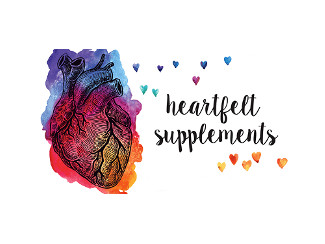
Healthy Heart Supplements
Sadly, the typical American’s heart is anything but healthy. Heart and other cardiovascular diseases are still the leading cause of death among Americans. According to a new study by the U.S. Centers for Disease Control and Prevention, the average woman’s heart is five years older than her biological age. The news is worse for most guys, whose hearts are typically eight years older than their biological age.
Blame it on bad eating habits, inadequate exercise and too much stress. But, fortunately, you can protect your heart by eating more natural foods, improving your lifestyle and taking a few supplements.
“Many supplements exert a positive effect on the heart,” says Kenshi Miyazawa, MD, a nutritionally oriented physician in Tokyo. “Coenzyme Q10 is one of my favorites because it energizes aging hearts. But omega-3s, magnesium and others are also very important.”
Try these proven supplement categories to give your heart some natural support.
Coenzyme Q10
Your heart requires tremendous amounts of energy to beat 100,000 times each day. Coenzyme Q10 (coQ10), the basis of the 1978 Nobel Prize in Chemistry, is essential for that energy production. A recent Danish study found that coQ10 supplements relieved heart failure symptoms in 58 percent of patients.
In addition, patients taking coQ10 also more than halved their risk of dying from any cause during the two-year study. A 2015 study, published in the Journal of Investigative Medicine, found that coQ10 also slashed the risk of atrial fibrillation, characterized by a rapid or irregular heartbeat.Dose: Take 50–100 mg of coQ10 daily for prevention. To treat heart failure, take 300–400 mg daily, but work with your doctor.
Magnesium
Many people overlook magnesium’s benefits to the heart. In short, the mineral helps the heart relax. Spanish researchers recently reported that people with high magnesium intake were one-third less likely to die from any cause, including heart attack, stroke or cancer. A study in the European Journal of Internal Medicine found that magnesium protected against hypertension.
Dose: Magnesium citrate is well absorbed. Take up to 200 mg twice daily.
Omega-3s
Omega-3 fats provide the broadest heart benefits of any nutrient. They help maintain normal heart rhythm and lower the risk of sudden death from arrhythmias. They also have a mild blood-thinning effect, can reduce blood pressure and greatly reduce triglycerides (a fat that increases heart attack risk). And it’s never too late to start taking them—researchers at Brigham and Women’s Hospital in Boston found omega-3 supplements helped maintain normal heart function and prevented scarring after a heart attack.
Dose: For cardiovascular protection, take 1,000 mg of EPA plus at least 200 mg of DHA daily. To lower triglycerides, you’ll need four times the amount of EPA.
Phytosterols
Found in fruits and vegetables, these compounds prevent your digestive tract from absorbing cholesterol. Studies have consistently found that phytosterols can lower total and low-density lipoprotein (LDL) cholesterol by an impressive 10 to 15 percent. Phytosterols are added to some brands of margarine but you can avoid that food’s dubious nutritional value by opting for supplements instead.
Dose: Take 1,000 mg phytosterols with each meal. Supplements might also be labeled as beta-sitosterol, stanols, phytostanols, campesterol and stigmasterol.
Vitamin K2
Coronary calcification, also known as hardening of the arteries, may be a sign of long-term vitamin K deficiency. The MK-7 form of vitamin K2 regulates where the body deposits calcium—in bones instead of arteries. Researchers consistently link high vitamin K2 intake to a lower risk of cardiovascular disease, and a new study by Dutch researchers found that supplemental MK-7 improved stiff arteries in women.
Dose: Take 50–180 mcg of vitamin K2 (MK-7) daily.
The information in this article is for general educational purposes only, and should not be construed or interpreted as medical advice. Always seek the advice of your physician or other qualified healthcare provider regarding any medical condition or treatment, and before undertaking a new heathcare regimen. Never disregard professional medical advice or delay in seeking it because of something you have read in this article or any linked materials.